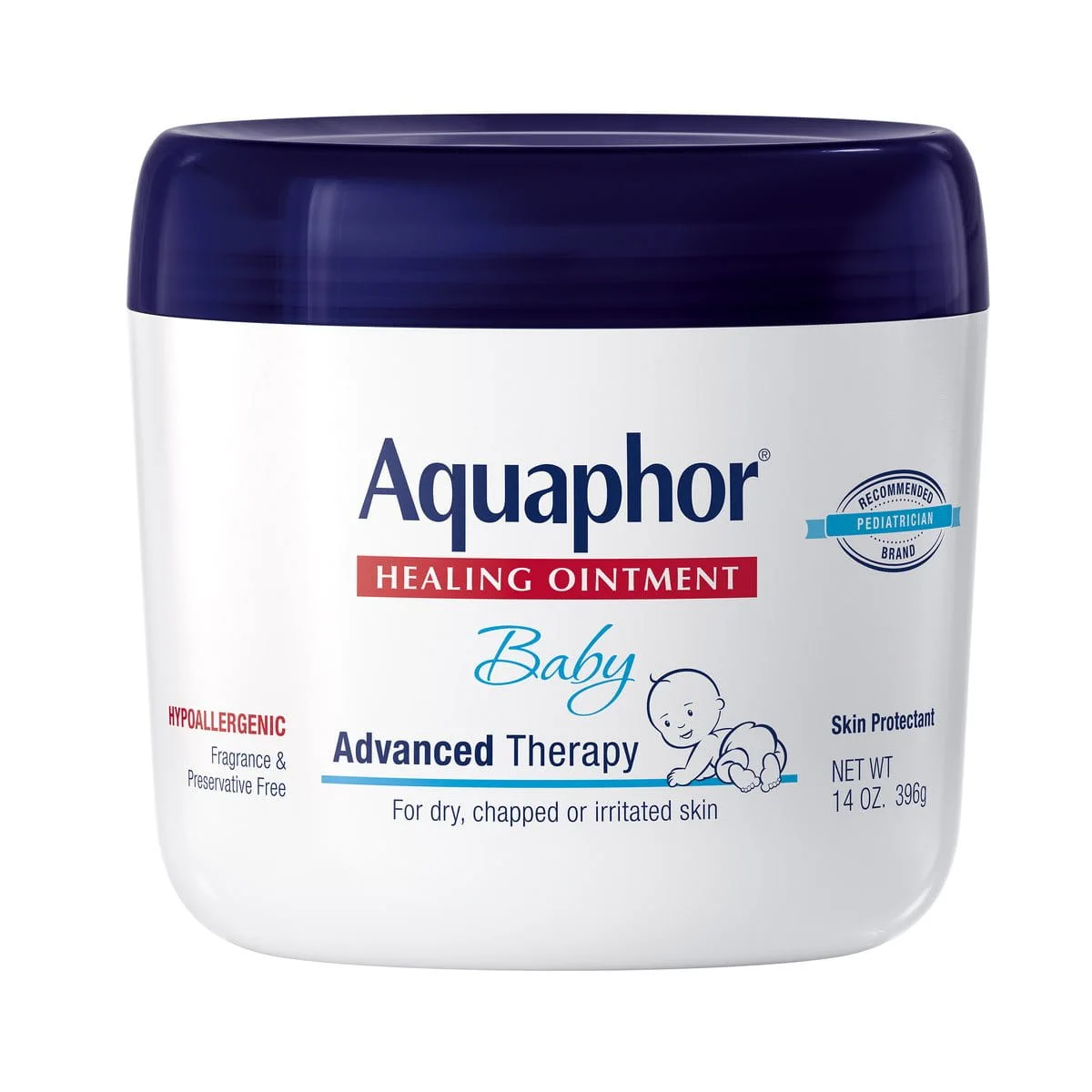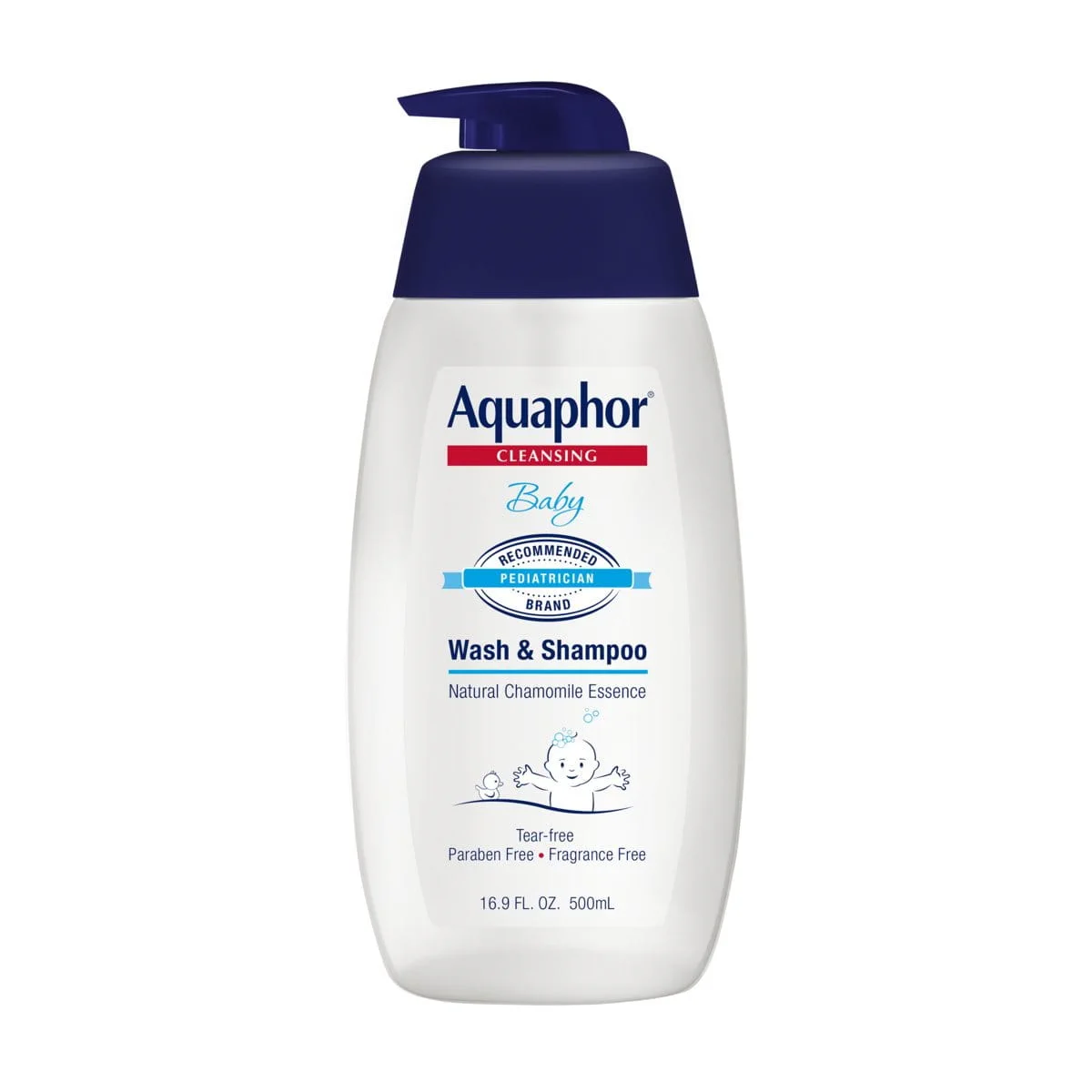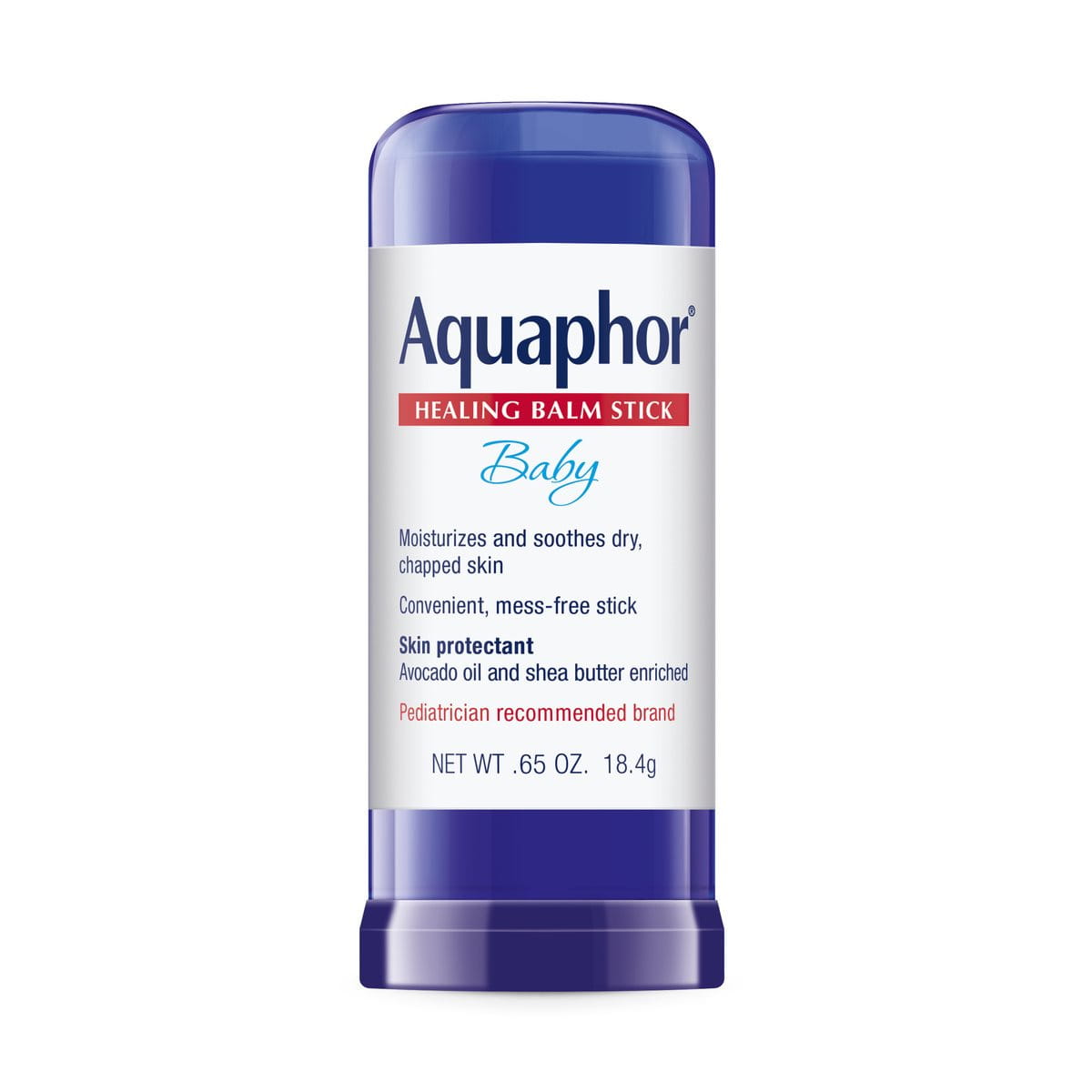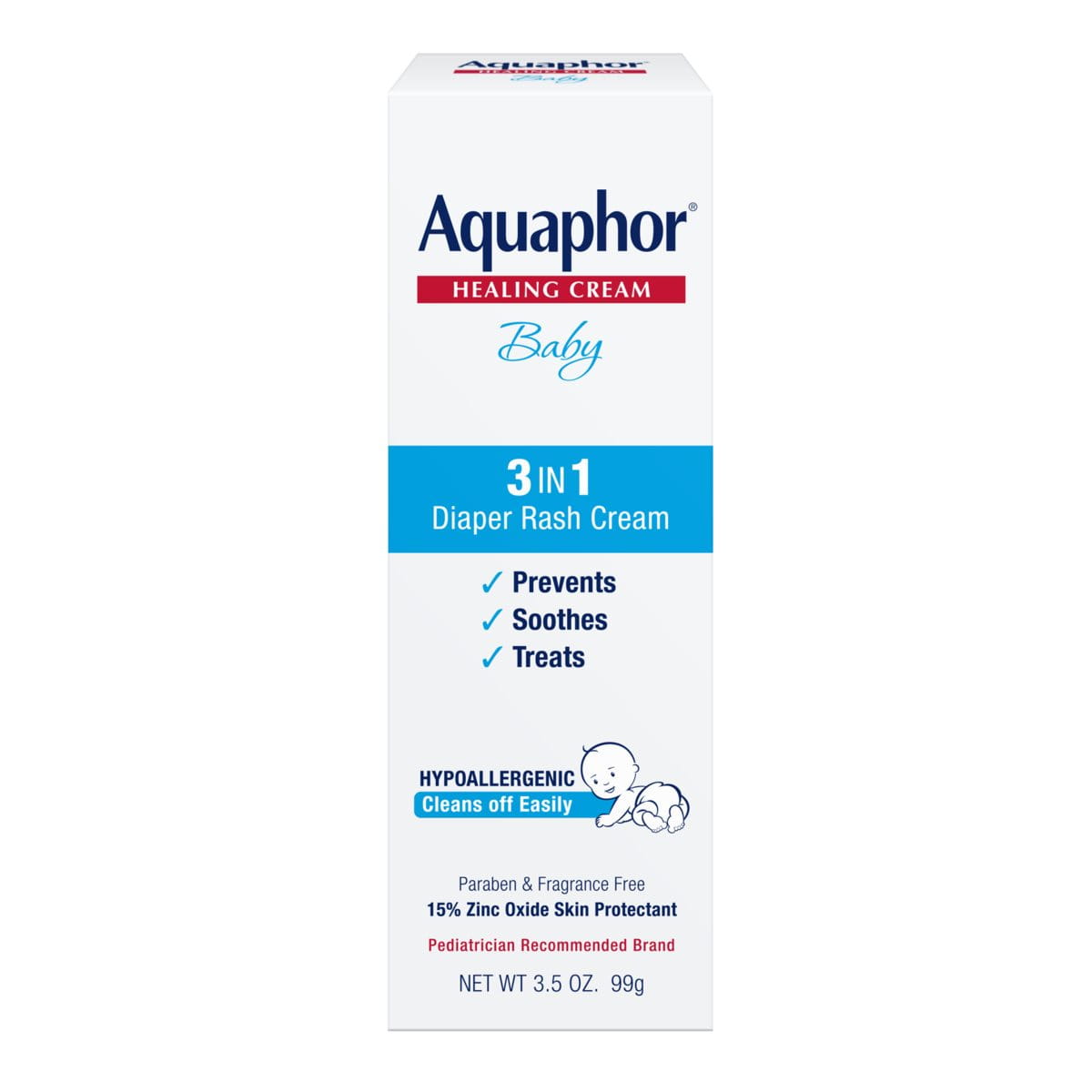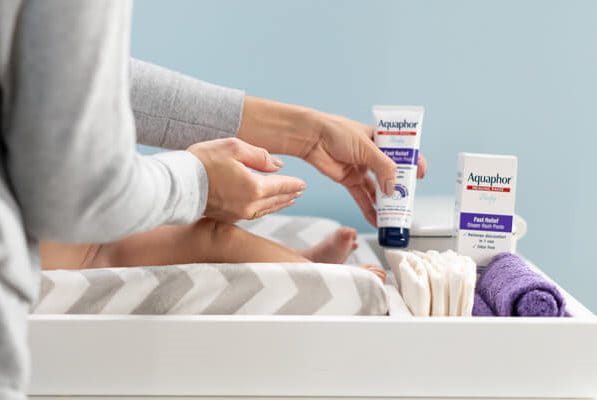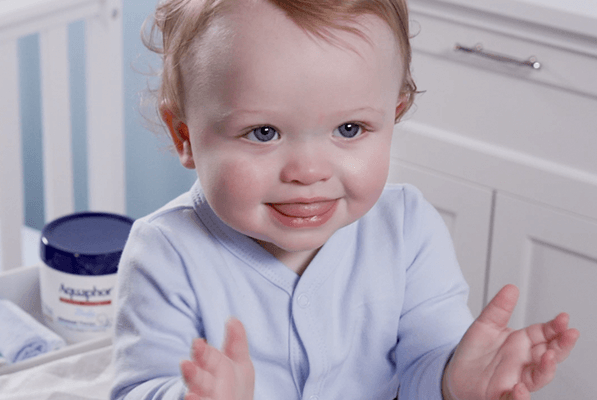Your baby’s skin is sensitive and delicate. After spending months protected in the womb, your baby’s skin is acclimating to being exposed to the environment, fabric, and touch for the first time. For many babies, this means they’re more prone to skin rashes and irritation, particularly during the first year.
So, whether it’s diaper rash, drool rash, a dry scalp, or chapped cheeks, there are steps you can take to help soothe and heal baby’s dry skin. Read on to learn about common causes of dry skin in babies, how to treat it, and when to call the doctor.
Why is my baby’s skin so dry?
When a baby is born, their outer layer of skin is thinner and more fragile than adults, making them more easily susceptible to moisture loss.
Some babies are also genetically more prone to having dry skin than others. Just like with adults, there are many factors that can contribute to baby’s skin becoming dry and chapped. Some common causes of dry skin in babies include:
- Weather conditions - exposure to cold, dry air can strip skin of natural moisture. Excessive heat (such as sitting in a hot bath for too long) and sun exposure can also dry your little one’s skin.
- Friction - tight clothing or diapers, and even bedding can chafe your child’s skin.
- Irritants and allergens - harsh soaps, perfumes, and detergents can irritate baby’s sensitive skin and lead to rough, dry patches and irritation. Similarly, allergens like pet hair, dust, pollen, or cigarette smoke can cause irritation and dry out the skin.
- Bathing too often - bathing your baby too frequently, especially if using cleansers or soaps, can wash away the accumulation of natural oils on the skin and cause dryness. Bathing just once or twice a week is generally advisable for newborns, with gentle cleaning on the face and diaper area more frequent.
- Diaper rash - irritated skin from diaper rash can become dry. The most common reason for diaper rash is prolonged exposure to moisture, like urine or stool. Other causes include allergies, diarrhea, antibiotics, or friction from an ill-fitting diaper.
- Drool rash - babies drool a lot, especially when they’re teething. Excess saliva and wetness can cause the skin on their chin, neck, and chest to become chapped, red, and visibly irritated.
What does baby dry skin look like?
For babies older than a few weeks, dry skin may involve peeling or tight-looking skin. Skin may be rough to the touch or look dull, gray or ashy. Skin may flake easily and may begin to chafe and look chapped and irritated. In cases of extremely dry skin, baby’s skin may crack and bleed. If this happens, contact your pediatrician for treatment advice.
This early skin peeling is similar to molting and is indicative of the body shedding a dry outer layer of skin with a healthy layer of the skin waiting underneath to emerge and take over. When this peeling goes on for longer than two weeks, this may indicate that your infant is experiencing dry skin.
If your baby has flaky, scaly, dry-looking yellow or red skin just on their scalp and/or eyebrows, this may be a sign of cradle cap. Cradle cap usually self-resolves within a few months, but if it continues or becomes itchy or inflamed, contact your pediatrician for further treatment.
Addressing baby’s dry skin on the face
Your baby can experience dry skin anywhere on their body, but dry skin is common on their face as this area of their skin is the most exposed to the environment. When there’s dry skin on your baby’s face, this is commonly caused by exposure to cold, dry air, or by a drool rash. A drool rash, or teething rash, occurs when baby’s skin is exposed to saliva from drooling for prolonged periods of time, so named because babies drool more as they’re teething. Your baby doesn’t have to be teething to experience drool rash, however.
How to get rid of dry skin on your baby’s face
While there is no quick fix to dry skin, with the right products like a soothing ointment, helping to heal dry skin is possible. If you notice your baby experiencing flakiness, roughness or chafing on their cheeks or other parts of their face, you can help treat their dry facial skin in the following ways:
- Keep skin clean and dry – gently wipe drool, food, or other liquids away from your baby’s mouth and chin using a soft cloth. Rinse gently with lukewarm water and pat dry a couple of times a day. If your baby has drooled onto their clothing or soaked through a bib, change them into dry clothes so wet fabric isn’t resting against their skin and causing irritation.
- Avoid extreme temperatures – avoiding prolonged exposure to extremely cold and dry or hot, sunny weather will help prevent your baby’s face from developing dry skin.
- Apply an ointment – once your baby’s skin is clean and dry, apply a specially formulated skin protectant ointment to help create a moisture barrier and skin protection benefits. Aquaphor® Baby Healing Ointment is uniquely formulated to provide extra gentle care. This fragrance-free skin protectant ointment with Petrolatum (a skin protectant), Panthenol and Glycerin, helps to moisturize, nourish, and protect the skin to enhance healing.
Treating and preventing baby dry skin
It’s no fun to see your little one uncomfortable. Here are some tips on how to help soothe and relieve your baby’s dry skin:
- Bundle up in the cold - If you live in a colder climate or experience a change of the seasons into winter, be sure to bundle your little one to protect any exposed skin from harsh wind or cold, dry air.
- Keep your baby hydrated - Ensure that your baby is staying hydrated with enough breastmilk or formula (or water, if older than six months unless otherwise advised by your pediatrician).
- Protect their delicate skin from the sun - For babies under six months, limit their exposure to sun and keep them in the shade, out of direct sunlight whenever possible. If you’re going outside with your baby, be sure to keep them cool and dry in breathable clothing in warm weather, and use a bonnet or sun hat to protect their scalp, neck, and ears from sun exposure. For babies over six months, be sure to frequently apply a high-SPF sunscreen as directed suitable for their age.
- Simplify bathtime - when it comes to bathing a newborn, you don’t need to bathe them every day. In fact, doing so can cause your baby to develop dry skin. Giving a newborn a full bath just once or twice a week is sufficient, while gently cleaning their face and diaper area more frequently in between.
- Keep baths short - limit bathtime to 5-10 minutes tops and always use lukewarm water. Hot water will further dry out their delicate skin.
- Use gentle cleansers -Soaps and detergents containing fragrances or harsh chemicals can irritate your baby’s skin and cause it to dry out. Be sure to wash with a gentle, fragrance- and dye-free cleanser like Aquaphor® Baby Wash & Shampoo and keep bath time to a minimum.
- Moisturize and protect - After bathtime, gently pat your baby dry with a soft cloth or towel and apply a skin protectant ointment moisturizer like Aquaphor® Baby Healing Ointment to their skin to help create a moisture barrier and protect the skin to help heal any dry, irritated areas.
- Change diapers more often - Frequently change your baby’s diaper and always apply a thick layer of skin protectant ointment, like Aquaphor® Baby Healing Ointment, this will help protect your baby’s bottom from wetness, acidity, and chafing. If a rash develops, switch to a treatment with zinc oxide skin protectant , like Aquaphor® Baby 3-in-1 Diaper Rash Cream or Aquaphor® Baby Fast Relief Diaper Rash Paste.
- Use a humidifier - When the air inside your home gets dry, particularly in winter when the heat is on, it can be helpful to use a humidifier to help keep your baby’s skin moisturized.
When to call the doctor
If the issue doesn’t seem to be getting better after a few days or if you notice skin problems accompanied by a fever or sluggishness, call your pediatrician immediately.
Soothe baby’s dry skin with Aquaphor® Baby
Aquaphor® is a pediatrician-recommended brand and knows how sensitive baby’s skin can be and has created gentle solutions suitable for your baby’s delicate skin needs. Shop our line of Aquaphor® Baby skin care products and help support moisturized, healthy-looking skin for your little one.
The information provided herein is not intended to be medical advice. Nor is it intended to treat the underlying skin disease or condition. The information is provided solely to:
1. Moisturize, soften and smooth dry skin
2. Improve the appearance of the skin
3. Achieve healthier-looking skin

